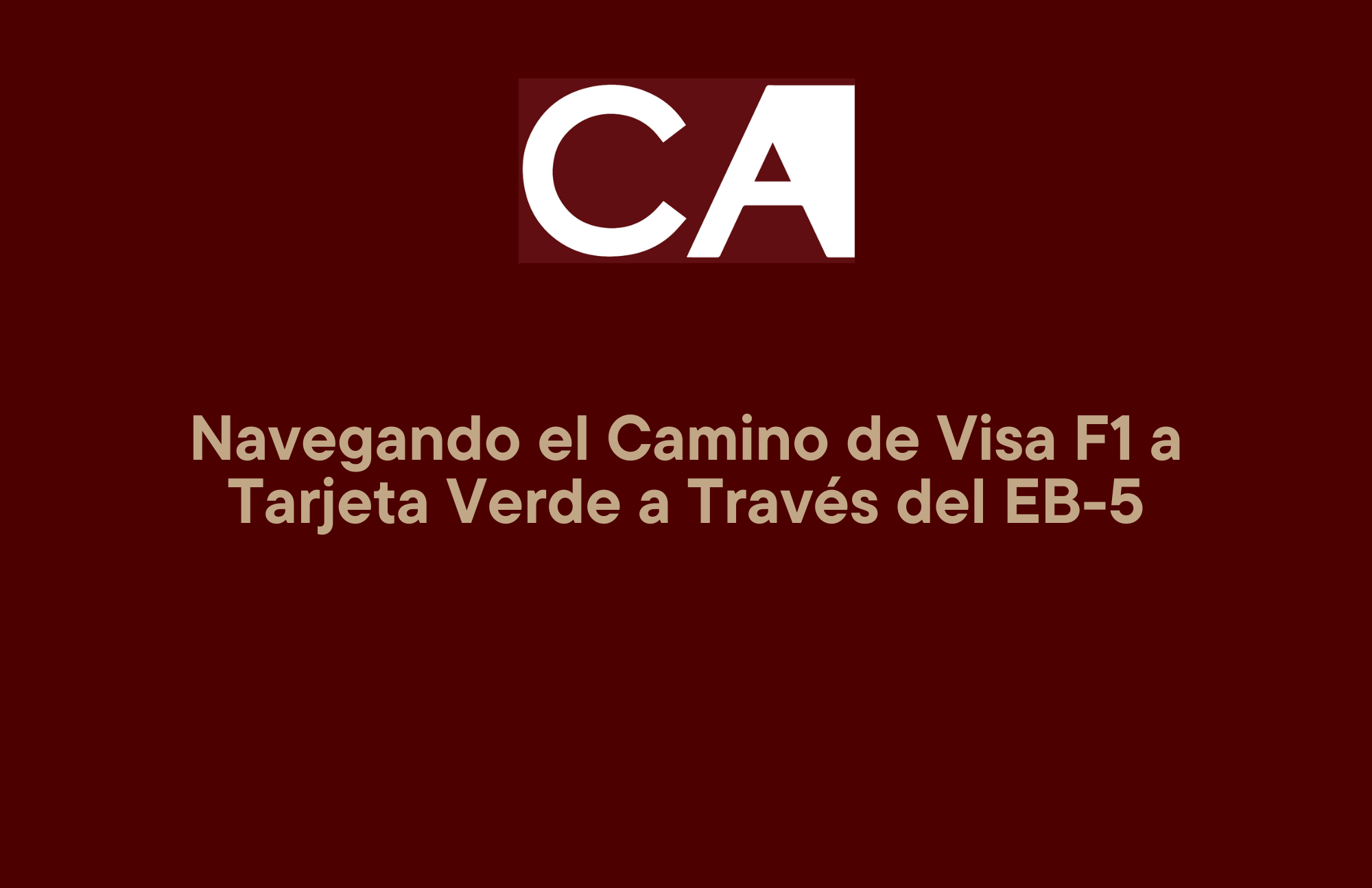Navigating the U.S. Immigration Landscape: H-1B Visa Challenges and the EB-5 Alternative
The U.S. has long been a beacon for skilled professionals worldwide, especially from India, seeking better opportunities and a higher standard of living. However, the immigration process can be challenging, particularly for those relying on the H-1B visa program. Recent changes proposed by the U.S. Department of Homeland Security (DHS) introduce additional hurdles, making alternative pathways like the EB-5 Immigrant Investor Program increasingly attractive.
The Impact of New H-1B and L-1 Visa Fees
The U.S. Department of Homeland Security (DHS) is proposing a new rule starting July 8 that requires employers to pay additional fees for extending work visas for foreign employees, including a USD 4,000 fee for H-1B visas and a USD 4,500 fee for L-1 visas. Previously, these fees only applied to initial visa petitions and changes of employer. The extension of these fees to visa renewals aims to fund national security programs, specifically the biometric entry-exit system that tracks non-U.S. citizens’ entry and exit.
This change significantly impacts the H-1B visa program, which is a crucial pathway for Indian IT professionals to work in the U.S. In 2022, Indians secured 77% of the 320,000 approved H-1B visas. The additional fees will increase costs for employers, particularly those heavily reliant on H-1B and L-1 visa holders, potentially leading them to reconsider their hiring strategies.
The H-1B Program and Its Limitations
The H-1B visa allows U.S. employers to hire foreign workers in specialty occupations requiring specialized knowledge and a bachelor’s degree or equivalent work experience. However, the demand for H-1B visas consistently exceeds supply, leading the U.S. Citizenship and Immigration Services (USCIS) to use a lottery system. In 2024, for instance, 780,884 individuals registered for an H-1B visa, but only 188,400 were selected. These low odds highlight the unpredictability and competitiveness of the H-1B process.
The EB-5 Immigrant Investor Program: An Alternative Pathway
For those seeking a more secure and predictable route to U.S. permanent residency, the EB-5 Immigrant Investor Program offers an attractive alternative. Enacted in 1990, the EB-5 program allows immigrant investors to obtain U.S. permanent residency by creating at least ten jobs for U.S. workers through substantial investment. Initially designed for direct investments in small businesses, the program has evolved with the introduction of «regional centers,» which pool capital from multiple investors to meet job creation requirements through indirect job creation.
Currently, the minimum investment required for the EB-5 program is $1.05 million, with a reduced amount of $800,000 for projects in rural or high-unemployment areas. The program offers several benefits, including the ability for investors and their immediate family members to obtain permanent residence, flexibility to travel in and out of the U.S., and access to the same tuition rates at U.S. universities as residents.
Comparing EB-5 to H-1B: Key Advantages
The EB-5 program presents several advantages over the H-1B visa. Unlike the H-1B, the EB-5 is not subject to a lottery system, has no educational requirements, and allows for self-sponsorship. Moreover, the 2022 Reform and Integrity Act introduced concurrent filing, enabling immigrant investors to file for adjustment of status while their EB-5 application is pending. This provision allows for advance parole and an unrestricted employment authorization document (EAD), providing significant flexibility and security for investors and their families.
Benefits of the EB-5 Program
The EB-5 program offers several unique benefits:
- No Random Selection: Unlike the H-1B lottery, the EB-5 is not random.
- No Education Requirements: There are no educational prerequisites for EB-5 applicants.
- Self-Sponsorship: Applicants can self-sponsor, providing greater autonomy.
- Concurrent Filing: Investors can file for adjustment of status while their EB-5 application is pending, offering more immediate benefits like advance parole and an EAD.

Steps to Begin the EB-5 Process
Prospective EB-5 investors should take the following steps:
- Find an EB-5 Immigration Attorney: An experienced attorney will help prepare your source of funds information, file your I-526E petition, and manage your concurrent adjustment if applicable.
- Select a Reputable Regional Center: Choose a regional center with a strong project and proven track record. The attorney will help ensure that the center complies with all regulatory requirements.
Common Questions About the EB-5 Program
- Can EB-5 Investment Funds Be Gifted?: Yes, provided the funds are legally sourced and compliant with program requirements.
- Is the Full Investment Amount Needed Upfront?: Not necessarily. The timing of the investment can be negotiated with the regional center.
- Are All Immigration Attorneys the Same?: No. It’s crucial to select an attorney with specific EB-5 experience, as not all immigration law experience is transferable.
Conclusion
Navigating the U.S. immigration system is complex and personal. The recent DHS changes for H-1B and L-1 visa extensions introduce additional financial burdens for employers and highlight the uncertainties within the U.S. immigration system. However, alternative pathways like the EB-5 Immigrant Investor Program offer a viable route to U.S. permanent residency, providing greater control and stability for immigrant investors. As prospective immigrants consider their options, it is essential to weigh the benefits and challenges of each pathway carefully to make informed decisions that best suit their personal and professional goals.


